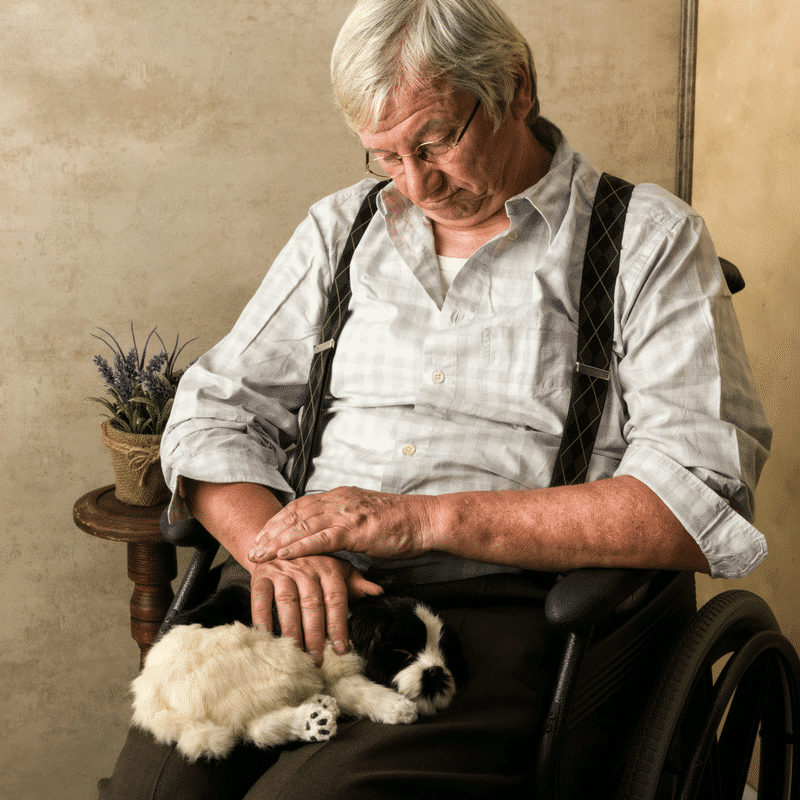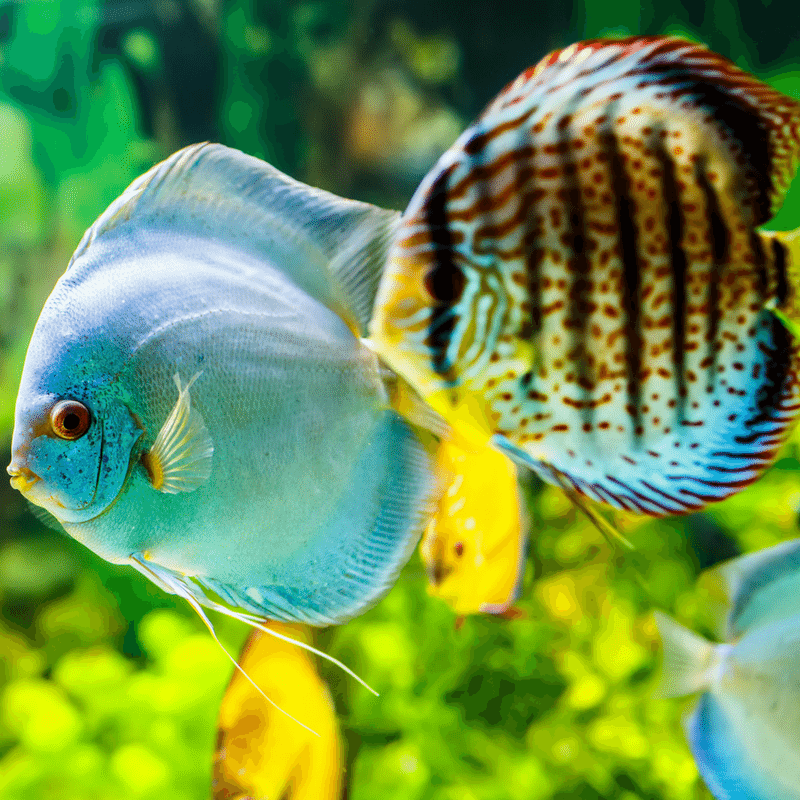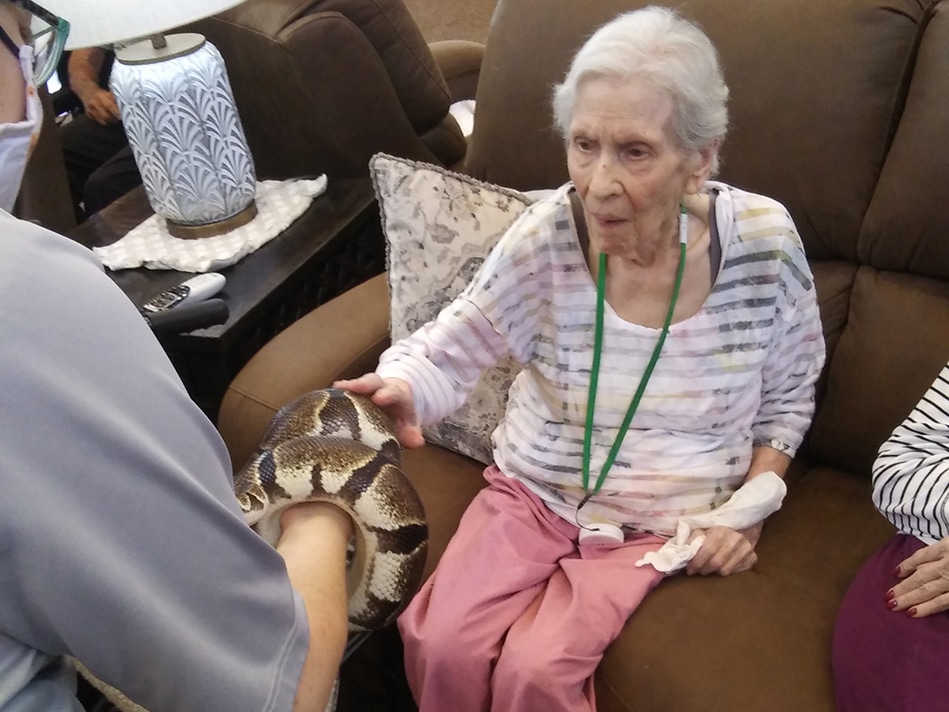Alternative therapies and helps of all kinds are being researched and used on a trial basis all across the country in the care of our elderly citizens. Especially in the care of those with Alzheimer’s and other types of dementias. In speaking with health care practitioners, we find a number of therapies that might seem logical, clinical and sterile. We will also find just as many that are difficult to explain, but seem to have very consistent and very promising results. One of these therapies is the use of animals with patients. But why would an animal be able to help an elderly person, especially one that is struggling greatly with memory problems?
Fulfill the Need for Companionship

We all have a need for companionship, and as we age that need is amplified by the circumstances around us. The older we are, the fewer friends and family might still be alive. We’re many times bound by physical problems, keeping us closer to our home and neighborhood. We may not have the skills to communicate using some of the newer technology that many of the younger generation seem to use for all of their communication. (Have you posted your latest Tik-Tok?) Animals can help us bridge the companionship gap. They are obviously not able to fully fill the void left by healthy human companionship. But our animal friends make help immensely by making us feel comfortable and calm, completely lacking in judgment and criticism & for being loyal.
Increase our Overall Health

Studies have been done that show the effects of having an aquarium in elder care facilities. They can help lower blood pressure as well as anxiety levels of those who watch them. Having dogs, cats and birds around can also provide a similar benefit, provided they are generally calm animals.
Keep Speaking Skills Sharp
This one may seem silly, but caring for animals really can help with the upkeep of our communication skills. People generally talk to the animals that they live with. Some people tell them about their day, or comment on their surrounding for them. Having an animal around can help keep communication skills sharp. It can also aid in giving an elderly person something to communicate about to others. If a neighbor comes to visit, the animal can quickly become the subject of conversation that would help to span other potentially silent moments during the visit.
Children Love Animals, Children Benefit the Elderly
We all know that animals will draw and keep the attention of children. And there are definitely benefits to the elderly of having children around. Children add life and vitality to otherwise dull and slow days. Having an animal in the home or assisted living facility with elderly residents can make the place much more inviting and natural feeling for children to visit. If they feel as if it’s inviting, they’ll be more likely to come back for a visit.
Caring for a Pet (and Others) is Good for Us
We all know that animals require care, some more than others. Much of that care can be carried out by a responsible elderly person. There may be a bit that they need help with, especially if their memory issues are getting worsening. In these cases, it’s especially important to have someone double check that the animals have been fed or watered. But, the care for an animal is a good way to keep us outward looking rather than inward looking all of the time. It can be a tendency for some aging individuals to only be focused upon what is going on within their world. At times neglecting anyone or anything around them. Caring for a pet helps to alleviate this tendency and helps us to remember that we are responsible for others, as well. Caring for plants or gardening helps in a similar manner.
Animals can benefit nearly everyone in some way, but especially the elderly. We do not need to understand all of the science behind why it works to enjoy those benefits. We are just glad that it DOES work!

